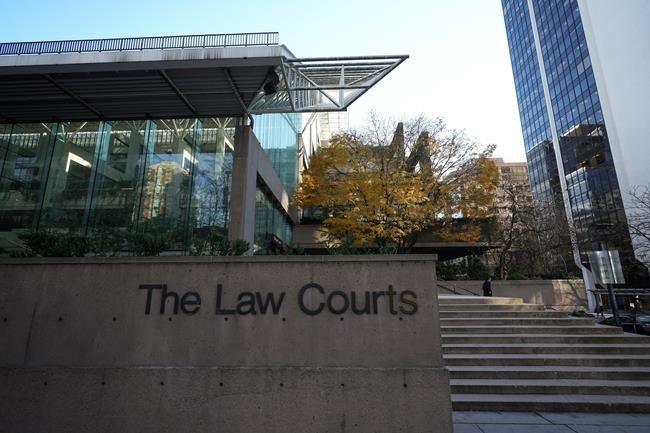VANCOUVER — The marathon murder trial of Ibrahim Ali has concluded with a jury finding that he sexually assaulted and strangled a 13-year-old girl, then left her body on the forest floor of a park in Burnaby, British Columbia, more than six years ago.
It took the B.C. Supreme Court jury just a few hours to reach its verdict of first-degree murder after a trial that lasted more than eight months.
After jurors stood to confirm they were in agreement with the verdict, Justice Lance Bernard thanked them for their months of dedication.
"I wanted, in the presence of the public, to extend my gratitude for your patience and dedication to this matter," he said.
There were repeated delays in the trial related to Ali’s mental and physical health, violent threats against defence lawyers, and the death of a Crown witness that prompted an unsuccessful mistrial application.
The jury came back with its verdict minutes after the judge responded to their earlier request for clarification on the differences between first- and second-degree murder and manslaughter.
Bernard told them murder would mean Ali deliberately caused the girl's death or meant to cause her bodily harm and knew that this was likely to cause death.
"Murder is first-degree murder ... when the death is caused by that person while committing or attempting to commit a sexual assault," he said.
Ali had little reaction to the verdict and those in the packed courtroom were quiet as the verdict was read out.
The conviction comes with a mandatory life sentence without the possibility of parole for 25 years.
The main Crown evidence was semen found inside the girl's body that was a DNA match for Ali. The girl's name is covered under a publication ban.
Ali's lawyer Kevin McCullough told the jury that the girl was not an "innocent" and it wasn't "outlandish" to suggest she may have found Ali attractive.
Ali was a 28-year-old refugee from Syria when he was arrested for the death of the girl. Described by McCullough as unable to read or write in any language and suffering "serious mental health issues," Ali had only been in Canada 17 months at the time of the arrest and had no previous criminal record.
Bernard told jurors in his instructions on Thursday that the case against Ali was circumstantial, requiring them to infer that Ali dragged the girl into the woods of Burnaby's Central Park in July 2017, sexually assaulted her, then strangled her.
His defence lawyers told the jury they couldn't find him guilty of first-degree murder because he had sex with a teenager, even if they found that "reprehensible."
Outside the courthouse, some people were celebrating the verdict.
Burnaby resident Juan Mei said she has no relationship to the girl's family but wanted to show support.
"The process has been too long. The pain will never end. I am so happy to see justice has finally been served. It’s a remarkable day," she said.
L.K. Rogers said she has been following the trial and she felt overwhelmed with emotion while hearing the verdict.
“I am thankful for the Canadian government, for its justice system,” she said. “I am so happy that she has justice," she said, referring to the victim.
Ali pleaded not guilty in April at the start of what was supposed to be a three-month trial.
The jury heard from almost 50 Crown witnesses, including police, civilians and experts.
The defence called no witnesses and presented no evidence. McCullough told the jury the Crown hadn't met the burden of proof.
Behind the scenes, McCullough and his co-council, Ben Lynskey were threatened for their defence of Ali.
On Friday, McCullough told the court he had "just received a litany of death threats" including ones he called "imminent."
He asked the judge to move the hearing to a more secure courtroom but it was denied.
In hearings without the jury present this week, just before the judge was to give his instructions to the jury, McCullough read a note sent to him that said his family would suffer a violent death.
"It will happen before Christmas. The last thing you will know is that your family suffers like the child suffered. I am suicidal due to childhood predators looking for someone to cause pain to. I'll burn myself alive."
In September, the jury had heard from Dr. Tracy Pickett, a sexual assault expert who testified that the teen's injuries strongly indicated that she had been sexually assaulted. But her testimony under cross-examination was never completed and she was found dead on the day she was due to return to the stand.
Bernard instructed the jury to disregard Pickett's testimony and to resist all speculation about her death.
Ali is expected to return to court on Tuesday.
— With files from Nono Shen
This report by The Canadian Press was first published Dec. 8, 2023.
Ashley Joannou, The Canadian Press
Note to readers: This is a corrected story. A previous version said the jury came back with its verdict minutes after asking the judge a question. In fact, it was minutes after the judge provided an answer to the question.




